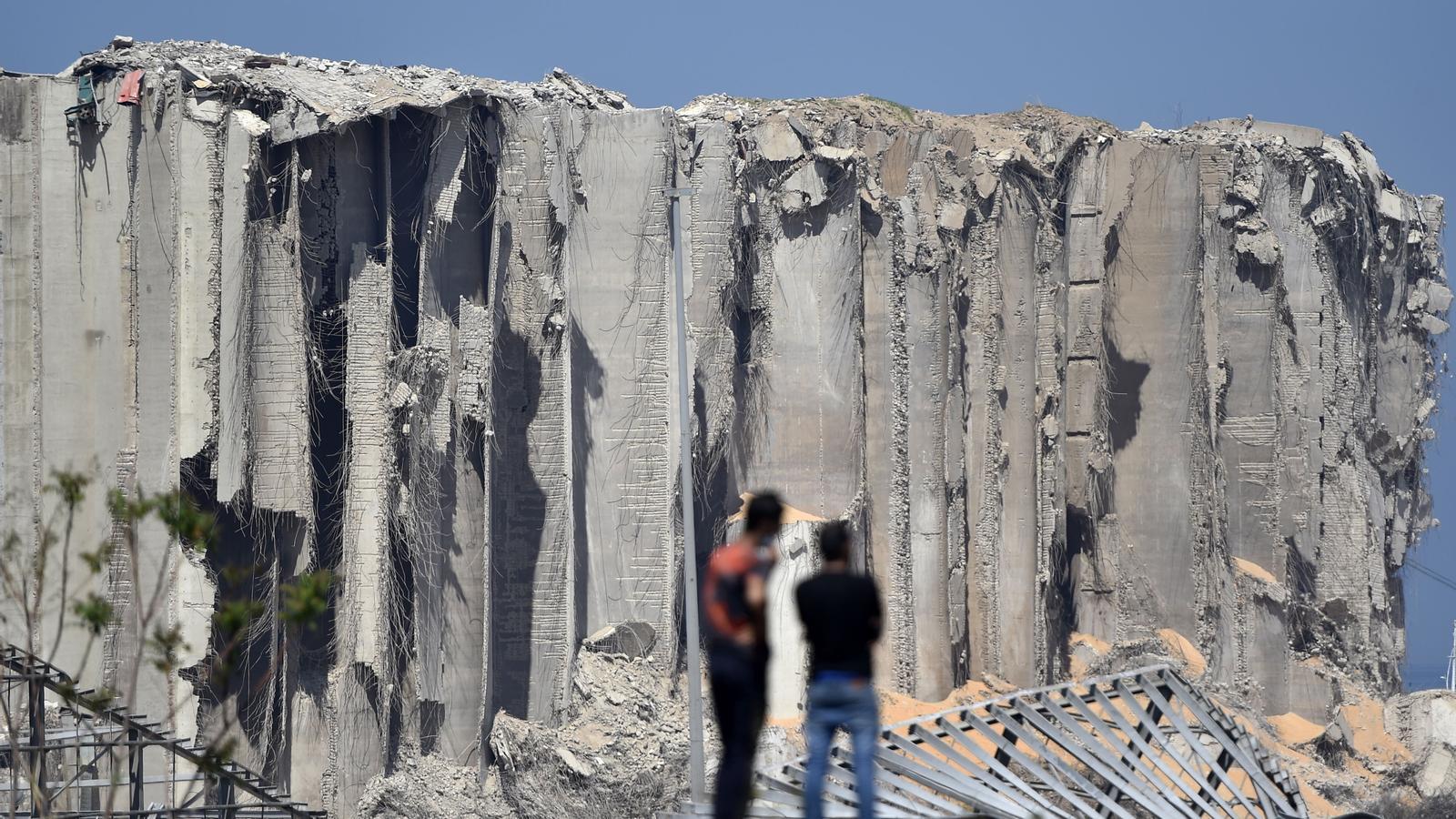"My daughter has been bedridden for five years": No compensation for victims of the Beirut port explosion
Half a decade after the massive explosion at the port of Beirut, the judicial investigation remains bogged down by political nepotism.


BeirutAugust 4, 2020, left a deep mark on Beirut that remains with many people. The double explosion at the port caused more than 220 deaths, thousands of injuries, devastated entire neighborhoods of the capital and turned the lives of thousands of families upside down..
Pierre Gemayel hasn't lived in his home since. Five years later, the building is still uninhabitable. The blast wave damaged the foundations of the block, built by his father in the 1970s. He and his family live in rented apartments. They have received no compensation or state aid. But the hardest loss was that of his brother Jacoub, who died that day.
Pierre lived with his mother on the top floor. Every morning, Jacoub went up to breakfast with them in the kitchen, which no longer exists. That morning, after breakfast, Pierre went to work at the law office. His brother wasn't well and stayed home. When the port silos started burning, he went to the window to film it with his cell phone. A few minutes later, the explosion shot him into the air. He died instantly.
The tragedy shattered the entire family. Another brother was hit by 135 pieces of shrapnel, wood, and glass, undergoing fourteen surgeries. His brother-in-law lost a leg. A niece, an eye. Another, an ear. Pierre found all of this when he returned home after the explosion. "That day my soul was broken. And I can't heal. Coming back here, where there is only rubble and silence, is like remembering that my family is broken. Everything my father built no longer exists. My brother Jacoub is gone forever, and I couldn't say goodbye," he says, walking among them.
No compensation for the victims
Pierre isn't just a victim. He also legally represents the other affected families. A metal object struck her head. Internal bleeding left her submerged for an hour, the time it took her mother to take her to the hospital. Chronic.
Her mother, a widow, cares for her alone and still works as a secretary in a bank. Someone must take responsibility. "They caused this. They killed us. My daughter has been in bed for five years. Who's taking responsibility? No one. There's no humanity. There's no protection in this country," she says, stroking her daughter's corpse-like face to comfort her. The political crisis has repeatedly blocked the investigation. The fear is shared: if someone falls, they all fall. 2,750 tons of ammonium nitrate stored uncontrolled in the portThe cargo set sail in 2013 from Georgia to Mozambique, but ran aground in Beirut after a technical stopover. Rhosus, a ship in poor condition, was detained by authorities, and its owners disappeared. The crew was trapped, without pay or food, for months. Finally, the cargo was unloaded at warehouse 12, under the custody of customs and with the knowledge of various government agencies. The highly explosive nitrate remained there for years. Safety measures were never adopted, despite internal alerts and official reports warning of the risk. No one did anything.
A system to protect the guilty
From the very first moment, the judicial process was caught in a web of conflicting interestsAn urgent investigation was announced, but the case was blocked from within. The first judge, Fadi Sawan, was removed after accusing powerful figures. His successor, Tarek Bitar, has launched a relentless offensive: more than 40 recusals, threats from Hezbollah, and attacks from Attorney General Ghassan Oueidat, who also released the few detainees. The process has been stalled for years.
Adding to the judicial obstacles are parliamentary immunities. The accused former ministers were elected and protected by their positions, and it was even proposed to try them in a special court composed only of MPs. In 2025, with the arrival of a president and a prime minister without ties to the political elite, the case was tentatively reactivated. Judge Bitar managed to resume key interrogations, such as that of former head of General Security Abbas Ibrahim. He plans to file formal charges for the anniversary of the explosion. But the blocking mechanisms remain in place and could nullify everything.
For the victims' families, it's an ordeal. They've left, received threats, and seen how institutions shield themselves from the truth. Today, the port case not only symbolizes deadly negligence, but also a system built to protect the guilty. The greatest danger isn't that there is no justice. It's that no one dares to demand it.
